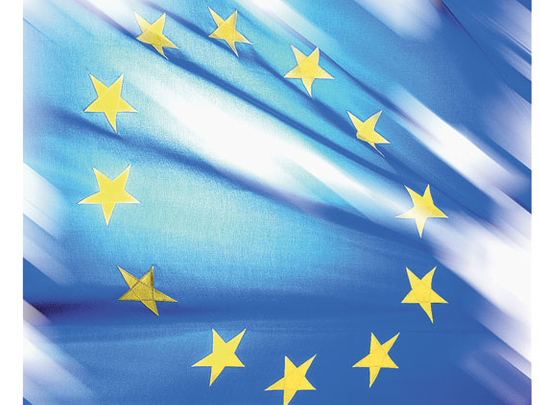
It is an old debate, but tensions within the euro area have revived it: can a monetary union survive without some form of fiscal federalism?
This issue is of persistent concern for investors worldwide. Holders of European government bonds believed that they knew what they had bought. Sure, there was no such thing as a Eurozone sovereign security. But German, French, Spanish, and even Greek bonds all carried roughly the same interest rate, so they were deemed equivalent.
Investors now recognise that they did not really understand what these bonds represented — that is, the institutional construct behind the European currency. And if the global financial crisis has taught us anything, it is this: when you do not understand a financial product, you should not buy it. But if investors actually take that lesson to heart, the European crisis will be far from over.
So, should Europe embrace fiscal federalism in order to strengthen the Eurozone and restore investor confidence? The problem is that fiscal federalism means different things to different people.
Americans think they know what it is: a central government with a large budget (about 20 per cent of GDP), whose macroeconomic role is to carry out counter-cyclical spending and taxation, as most US states are constitutionally committed to some sort of balanced budget.
This was clearly true in the case of the stimulus programme launched in 2009, which included federal transfers to the states to sustain state-level fiscal spending. Similarly, when a state such as Michigan is hit by recession in its key economic sector (the auto industry), Washington collects less federal tax but maintains — if not increases — local spending, which partially offsets the shock to state income.
Economically, therefore, the federal budget cushions regional shocks automatically through discretionary action and stabilising transfers to the states. Politically, it embodies solidarity and thus helps cement the union.
If this is what is meant by federalism, it is better for the European Union to forget about it. The EU budget amounts to about one per cent of GDP, just one-fortieth of total public expenditure. No one, not even die-hard European integrationists, imagines that it can reach five per cent of GDP (it is more likely to decrease). But even a five per cent-of-GDP budget would be insufficient to play a meaningful macroeconomic role.
A second solution is what can be called "distributive federalism." The goal is not to absorb shocks but to reduce income gaps across regions. In Germany, tax revenues are redistributed between the Länder. This is another form of solidarity, which also exists in the EU, where regional development funds are allocated to poorer regions to foster catch-up growth.
These transfers are significant for poor countries: about 300 euros per person for Greece and Portugal every year from 2000 to 2006. Europe, in this respect, is not qualitatively different from the US.
These transfers have accelerated convergence when put to good use (for example, in several Spanish provinces), but have been ineffective when wasted (as in Greece). This feeds doubts about solidarity's usefulness. Germans, who since reunification in 1990 know what they are talking about when it comes to such transfers, do not want to hear about a Europe where rich regions would permanently finance pockets of under-development. They are not alone in this.
Source of inspiration
What, then? Conceptually, the Eurozone must include solidarity with countries facing hardship, because this is what unites and gives strength to the whole — but without the heavy machinery of a federal budget or a permanent increase in transfers. It needs some sort of mutual insurance, or what could be termed as "insurance-based federalism."
This is what inspired the decision-taken in May to create the European Financial Stability Facility (EFSF), by which assistance can be provided, jointly with the International Monetary Fund, to partner countries in times of crisis.
It is also what inspired the European Central Bank to launch an asset-purchase programme, which has been used to buy Greek and Portuguese government bonds.
But the uproar caused by these decisions reinforces, rather than dispels, doubts. In Germany, many consider the EFSF a breach of the fundamental principle that EU governments cannot be bailed-out by their partners. And the transformation of the central bank into a quasi-fiscal agent (because if Greek debt is restructured, the ECB will record losses) is regarded with horror, as it violates the separation between money and public finances.
Instead, it is claimed, Eurozone members should have been allowed to default. No matter that the public debt of the average US state is less than 0.5 per cent of total US GDP, compared to five per cent in the Eurozone, which implies that the financial impact of a Eurozone sovereign default would be much stronger. And no matter that there is no prohibition on the purchase of government bonds on the secondary market: the Rubicon has been crossed, and the Germans are nervous.
So there is no agreement yet to make the EFSF permanent, and it has been designed to be as un-federal as possible. When it comes to ECB purchases of government bonds, no one understands exactly for how long and for what purpose the new weapon is to be used — which reduces its effectiveness.
Meanwhile, proposals for pre-adoption assessment of national budgets by the EU have attracted criticism in France and elsewhere, which serves as a reminder of the distance there is between calls for coordination and actual acceptance of its implications. The Europeans have begun to assemble the bricks for a new building, but without having agreed on its size and design. For the time being, they rather give the impression to have thrown sandbags in disorder in an attempt to stop a wave.
This may make sceptics the very people European policymakers wanted to convince. It is time to accept that those who finance EU governments through purchasing their bonds are entitled to ask inconvenient questions, and to expect clear answers.
— Project Syndicate, 2010.
Jean Pisani-Ferry is Director of Bruegel, the EU economic and policy think tank based in Brussels, Professor of Economics at Université Paris-Dauphine, and a member of the French Prime Minister's Council of Economic Analysis.











